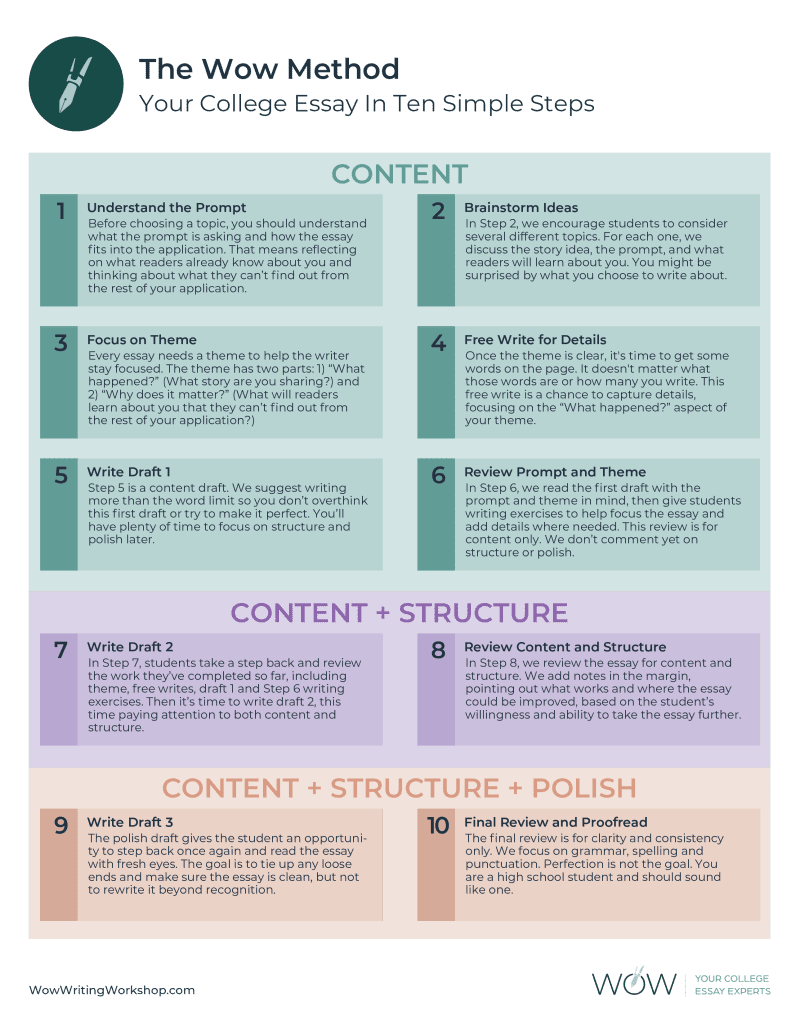When it comes to college essays, the personal statement most often comes to mind. But many colleges also require supplemental essays. Top of the list: The Why Us? college essay.
Just like any piece of writing required as part of your application package, the Why Us? college essay is an opportunity to share something meaningful about you that you want that college to know. The essay is your interview – your elevator pitch to state your case for admission.
Why should College X pick you?
Many schools ask students to respond to a Why Us? college essay prompt like one of the following:
- “I am applying to Tufts because…”
- What about being a student at Boston University most excites you?
- Please describe why you are interested in attending Tulane University ?
- Describe the unique qualities that attract you to the specific undergraduate College or School (including preferred admission and dual degree programs) to which you are applying at the University of Michigan. How would that curriculum support your interests?
- Why are you interested in attending Columbia University? We encourage you to consider the aspect(s) that you find unique and compelling about Columbia.
- What is your sense of Duke as a university and a community, and why do you consider it a good match for you? If there’s something in particular about our offerings that attracts you, feel free to share that as well.
Related stories:
How to Write the Common App Essay - Top 5 College Essay Myths
- What’s The Biggest Mistake Students Make in their College Essays?
- Don’t Try So Hard to be “Unique” In College Essay
- How to Write Great Supplemental Essays
Lots of students misunderstand the prompts and miss an important opportunity to stand out. I just reviewed a typical essay that missed the mark: It was a beautifully written story from a student answering the “Why Us?” prompt for a Big Ten university.
Full of descriptive details about the school’s location and football stadium, the story painted a vivid picture of the long drive to and from the school in the family car with his dad, an alumnus. This boy was clear he wanted to follow in his father’s footsteps, he was comfortable inside the stadium, and he was certain he would feel at home at this university.
Unfortunately, this story did not respond adequately to the prompt. He focused on his dad and a football stadium, not on himself. Your task is to focus on YOU!
To get moving in the right direction to answer any Why Us? prompt, consider what you want the college to know about you that is not evident from the rest of your application package. How do the college’s curriculum, clubs, and campus life support your interests? Why are you a good fit for the institution?
This task can be difficult, even for students who spent their childhoods wearing sweatshirts emblazoned with their parents’ alma maters. Most students have no idea what a school offers academically, socially, or culturally. The prompt is also challenging for students who want to tell admission officers how much they love the big city, how badly they want to escape their small towns, or how much they love the old buildings on campus.
Be careful! This is not what admission officers are looking for. In your Why Us? college essay, they want to know why you are a good fit for their campus, whether you have the chops to succeed academically, if there are clubs and activities to support your interests, and if you are likely to graduate from this institution.
After speaking with admission officers from small liberal arts colleges, elite universities, and state institutions, I’ve found that regardless of size, status, or essay prompt, they all offer similar tips:
- Don’t overthink it.
- Tell us (admission officers) what you want us to know about you, not what you think we want to hear.
- Answer the prompt honestly.
- Make sure your essay is focused and written in your own words and your own voice.
You should never be thinking, “What are they looking for?” The better question is, “What do I want them to know about me?” They know how great they are; your job is to let them know how great you are and why you are a good fit for their school or program.
No matter what prompts come your way, one asking why you want to study chemistry or English, a question asking you how you have discussed a complex issue with someone with an opposing view, or a prompt asking how you’ve contributed to building a collaborative and/or inclusive community, consider what you want to share with colleges and why before you write anything.

Don’t believe everything you hear or read!
When ChatGPT took up headlines, many experts, including a few admissions thought leaders, predicted the end of the college essay. Just a few months later, following the Supreme Court’s ruling against affirmative action, we’re hearing more predictions: the essay will become more important than ever.
Our message never changes. If you are asked to write an essay of any type for college admission, do it right. Give it the time it deserves. Write it yourself, in your own words and voice. Write about yourself, not a topic. Be genuine. You cannot fake your story; admissions officers can tell. You can manufacture experiences. Admissions officers can tell.
You can get help, but make sure it’s the right kind of help.
There’s so much information about college essays out there, how can anyone, even a bright, talented student, tell the difference between what’s worth listening to and what’s not? That’s where we can help. I am a journalist by training, and I only share information she has checked and double-checked, then checked again.
At Wow, we go straight to the source – college admissions officers – to find out what they’re looking for in application essays, and we’re excited to share what we know with you. We can help you parse and answer any essay prompt. Learn more.


